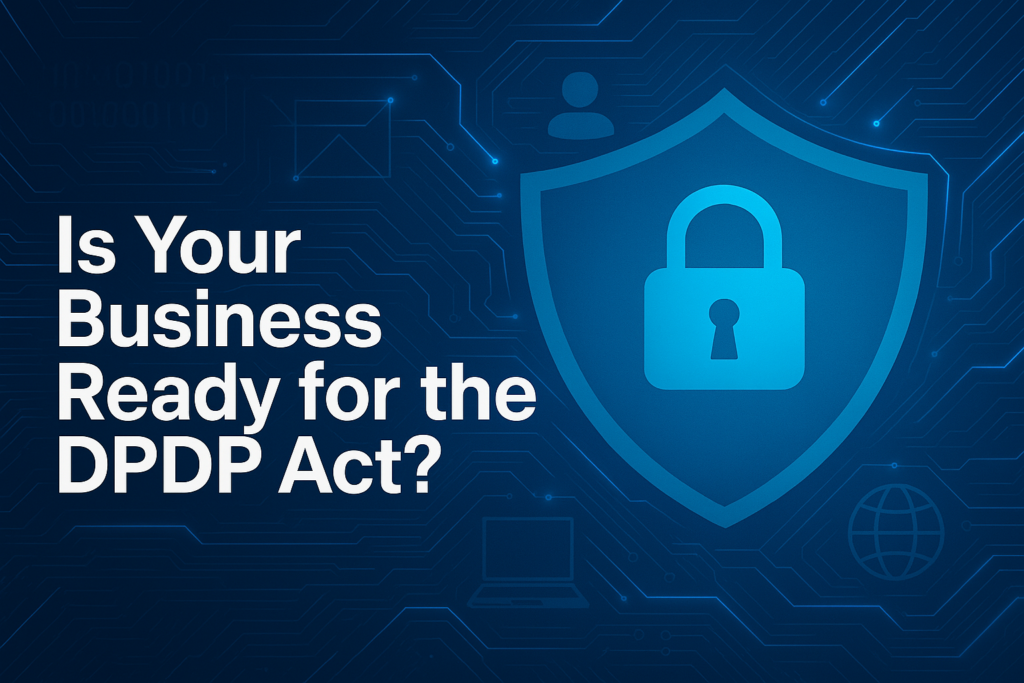In 2025, the Digital Personal Data Protection (DPDP) Act is no longer a future regulation, it’s a legal obligation. The Indian government has initiated full enforcement of the Act, and all businesses processing personal data, regardless of size, are now accountable for data privacy, security, and consent management.
If your organization operates in India or processes data of Indian citizens, compliance with the DPDP Act is mandatory. Here’s what your business must know to stay compliant and avoid penalties.
What is the DPDP Act?
The Digital Personal Data Protection Act, 2023 is India’s landmark privacy law that governs how organizations collect, store, and process personal data. Inspired by global frameworks like the GDPR, it focuses on transparency, user consent, data minimization, and accountability.
Key Provisions You Must Understand
- Data Fiduciary Obligations Any organization collecting personal data becomes a Data Fiduciary and must:
- Data Principal Rights Individuals (Data Principals) have rights to:
- Significant Data Fiduciary Classification Large-scale processors of data (e.g., fintech, healthcare, edtech, etc.) may be categorized as Significant Data Fiduciaries and are required to:
- Cross-Border Data Transfer Cross-border transfers are permitted only to countries approved by the Indian government. Cloud providers and SaaS businesses need to review their hosting strategies carefully.
- Hefty Penalties for Non-Compliance Fines may go up to ₹250 crore for failing to prevent data breaches, or for violating consent norms.
Who Must Comply?
The DPDP Act applies to:
- Indian companies handling employee, vendor, or customer data
- Foreign companies offering services in India
- Startups, MSMEs, enterprises, SaaS platforms, fintech firms, and more
No sector is exempt.
Steps to Ensure Compliance in 2025
- Data Mapping & Classification Know what personal data you collect, store, and share.
- Consent Management Platform Implement mechanisms to record and manage user consent.
- Update Privacy Policies Ensure your privacy notices are DPDP-compliant and easy to understand.
- Data Minimization Practices Avoid collecting data beyond what is necessary for the service.
- Security Controls & VAPT Regularly audit your IT infrastructure. Perform Vulnerability Assessment & Penetration Testing (VAPT) to identify gaps.
- Incident Response Plan Prepare for breach notification and mitigation as per the Act’s mandate.
- Appoint a DPO (if required) Especially if you’re a Significant Data Fiduciary.
- Third-Party Risk Management Review vendor contracts and data-sharing agreements for compliance.
How InFocus IT Can Help
At InFocus IT, a CERT-In empanelled cybersecurity firm, we specialize in helping Indian businesses navigate the complexities of the DPDP Act. Our services include:
- DPDP Gap Assessment & Roadmap
- Data Classification & Privacy Impact Assessment
- Consent Framework Implementation
- VAPT & Cloud Security Audits
- DPO as a Service
- DPDP Awareness Training
Final Thoughts
The DPDP Act is a crucial step toward a secure digital India. Non-compliance is no longer a risk, it’s a legal violation. If your business handles any form of personal data, it’s time to embed privacy into your tech, processes, and culture.
Want to know where you stand?
Contact Infocus IT today for a free DPDP readiness consultation
